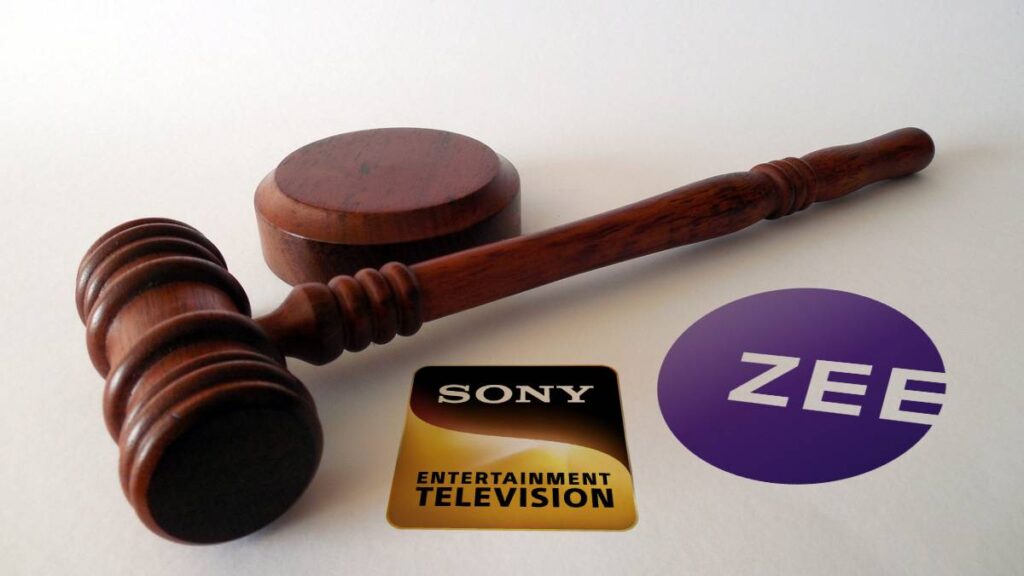Subhash Chandra, the chairman emeritus of Zee Entertainment Enterprises, alleges that Sony intentionally prevented a merger, rejecting the Zee promoters’ offer during extended negotiations to have Punit Goenka step aside from the chief executive’s post. Chandra asserts that Zee plans to sue Sony for damages.
In an interview with Vinod Mahanta and Javed Farooqui, Chandra discloses that the promoter family will increase its stake in the company by 5%, aiming to reach a total of 26%. The stumbling block arose as Sony did not want Punit as CEO.
Chandra is aware that some shareholders still believe that if Punit had stepped aside, Sony would have proceeded with the merger. The family collectively decided on December 14-15 that Punit should step aside, and the merger should proceed for the benefit of Zee. Despite presenting this option to Sony, it was not acceptable, and Chandra believes this was Sony’s strategy all along – to engage with Zee and eventually withdraw, portraying Zee as vulnerable. Chandra intends to convey this perspective to the Zee board.
Although Sony extended the deal by a month to explore the possibility of an agreement, it now alleges that Zee did not fulfil the merger conditions.
Zee’s Potential Lawsuit Against Sony
In arbitration and the NCLT case, Zee will demonstrate that it has fulfilled the majority of conditions and prerequisites, with a few conditions dependent on the completion of the merger. The delay in finalizing these conditions earlier was due to potential implications for Zee if the merger didn’t proceed as planned.
Regarding the possibility of suing Sony for damages, Zee affirms that it will be pursuing legal action. Chandra, expressing his perspective, states that if he were the CEO, he would have already initiated a lawsuit. He asserts that he can prove Sony’s criminal design to initiate the merger process and then withdraw. As a promoter, he is seriously considering filing a criminal case against Sony.
Addressing inquiries about alternative deals, Chandra reveals that Zee has not approached the Ambanis or the Adanis. However, he emphasizes that Zee, being an irreplaceable asset, has garnered interest from several large private equity firms. These firms have proposed offers to provide loans and increase promoter shareholding. Chandra personally expresses a reluctance to take on additional debt, citing past efforts to extricate himself from such situations and a lack of courage to assume more debt.
Promoter Family Considers Increasing Stake in Zee
Yes, the promoter family is actively considering raising its stake in the company. Subhash Chandra personally encourages both his immediate and extended family to increase their holdings in Zee. He has also approached his younger son, Amit Goenka, who, being a successful NRI, has agreed to invest in Zee instead of other companies. The aim is to acquire an additional 5%, eventually reaching a holding of 26%.
SEBI’s Personal Inquiry into Investigation
SEBI has finally called Subhash Chandra personally regarding the investigation. He acknowledges the inquiry and states that he will go to explain his position on every matter.
Zee’s Share Price Drop and Market Cap Decline
Zee’s share price witnessed a 33% crash on January 23, leading to a market cap fall to Rs 15,680 crore. Addressing the impact on retail investors, Chandra expresses distress, emphasizing that he believes the worst is behind them. Drawing a parallel to a past situation in 2019, he assured lenders and is now conveying a similar message to minority shareholders: exercise patience for three to four quarters with Punit and the board, and positive results will follow. Chandra is confident that Zee will rebound to its previous levels, highlighting that at its peak, Zee’s EBITDA was Rs 2,400 crore, and it will achieve those numbers again. He reaffirms Punit as the best person to run the complex organization.
Zee’s Stance Post Merger Termination and Partnership Alternatives
Zee believes it doesn’t require any alternatives following the termination of its partnership with Sony. With no debt and no additional working capital requirement, external assistance is deemed unnecessary. Subhash Chandra, the founder-promoter, confidently asserts this as a unique selling point of Zee, ingrained in its DNA, capable of generating profits from existing resources.
Reflecting on past challenges in 1998-99, Chandra recalls an analyst’s prediction about Zee’s survival amidst competition. Despite setbacks like the impact of Kaun Banega Crorepati (KBC), Zee has not only endured but maintained its position over two decades against numerous competitors. Chandra emphasizes his belief that content creation relies not solely on money but on empowering creative minds and listening to viewer perspectives. Regarding the need for a strategic partner or investor, he defers the decision to Punit and the Zee board. If concerns arise about low shareholding causing problems, similar to Invesco’s actions, Chandra asserts that it will be a decision for Punit and the board to make.
Initial Reaction to Punit’s Deal Announcement
Upon Punit’s first revelation of the deal, I requested some time for contemplation and sought clarification on the reasons behind pursuing it. This decision was influenced by the ongoing Invesco episode, where an offer for a merger with Viacom18 from Reliance was on the table. Although the deal seemed favourable for Punit and the family, the Zee board, in its wisdom, pointed out that, while it might benefit the promoter family, it would not be advantageous for minority shareholders. As a founder, I supported the board’s stance.
Defeat of Resolutions Indicates Shareholder Dissatisfaction with Board
The recent defeat of resolutions for the reappointment of independent directors Vivek Mehra and Sasha Mirchandani highlights shareholder dissatisfaction, as the proposals failed to secure approval from 75% of shareholders.
Adesh Kumar Gupta withdrew his candidature earlier, and a proxy firm expressed concerns about another director serving on too many boards and audit committees. It is reiterated that, although there may have been corporate governance lapses, they were not intentional.
Also Read: eBay Slashes 1000 Jobs Amid Post-Pandemic Shift in Workforce Strategy
